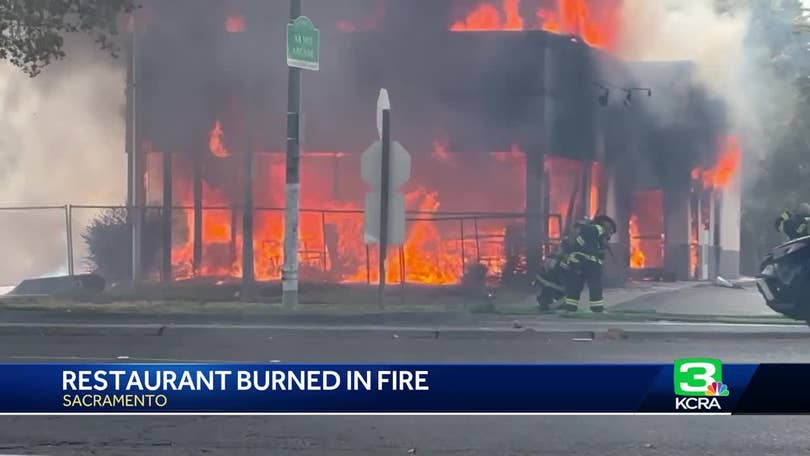Heartbreaking: Devastating Fire Destroys Beloved Restaurant in Sedona, Arizona
The scent of rosemary and mesquite used to drift lazily down Oak Creek Canyon, where *La Estrella Azul* had stood for thirty-four years. It was more than a restaurant — it was a sanctuary of memory, a place where engagement rings had been passed across candlelit tables and generations had shared birthdays and anniversaries under its twinkling patio lights. But on a dry April evening, that legacy vanished in a plume of smoke.
When the fire broke out just after midnight, the night sky glowed with a deep orange hue that could be seen for miles. Locals who lived along State Route 89A stood helplessly in their driveways, clutching blankets around their shoulders, watching the flames devour what had become a cornerstone of the Sedona community.
The fire started in the kitchen, officials believe, perhaps from a faulty electrical panel. Within minutes, it had spread through the timber-beamed ceiling and out onto the redwood deck that hugged the restaurant’s exterior. By the time emergency crews arrived, the fire had already consumed the heart of the building. Firefighters battled the blaze for four hours before finally containing it, but *La Estrella Azul* was gone.
Sofia Navarro, the restaurant’s owner, arrived on the scene around 1:00 a.m. Her face was pale, her dark hair still tangled from sleep. She stood in the gravel parking lot with her hands to her mouth, watching the flames reflect in the windshield of her old Subaru.
“My parents built that place from nothing,” she said in a whisper, more to herself than anyone else. “My whole life is in those walls.”
Sofia had taken over the restaurant from her father, Miguel Navarro, in 2012 after his stroke. Miguel, a son of Mexican immigrants, had opened the restaurant in 1990 with a dream of bringing authentic Sonoran cuisine to northern Arizona. The community had embraced the flavors — slow-roasted carnitas, cactus salad, poblano mole — and the Navarro family with open arms. Sofia expanded the menu with her own touches: locally sourced trout, blue corn tamales, and a dessert tamarind crème brûlée that had won praise in food magazines.
The restaurant had survived recessions, a pandemic, and three monsoon floods. But it couldn’t survive this.
By morning, the ashes had cooled, revealing little more than a blackened frame and the skeletons of metal tables. The iconic cobalt-tile sign that bore the restaurant’s name lay cracked in the dirt. On the side of the charred patio fence, someone had placed a small bouquet of wildflowers and a handwritten note that read: *”Thank you for the memories.”*
“It was our Sunday spot,” said Carolyn Reed, a Sedona local who came by with her teenage daughter to see the damage. “My husband proposed to me here in ’98. It feels like a piece of our story burned down with it.”
As news spread, tributes poured in. Former employees shared photos of their time in the kitchen, laughing in aprons dusted with flour. Couples posted snapshots of anniversary dinners beneath the fairy lights, glasses of sangria raised in joy. Tourists who had stumbled upon the place during a hike or road trip recounted their surprise at finding such warmth — both culinary and personal — in a little adobe building nestled among the red rocks.
By mid-afternoon, a fundraiser started by one of the former sous-chefs had already raised \$60,000. The goal: help Sofia rebuild.
But Sofia wasn’t thinking about that yet. She sat on the tailgate of a friend’s truck, staring into the ruins. A fire inspector spoke quietly to her, explaining procedures, pointing out potential salvageable elements. She barely heard him. Her eyes were fixed on what used to be the corner booth near the window, where her father used to sit every morning with a cup of cinnamon coffee, greeting each member of the staff by name.
“I don’t know how to start over,” she said to a reporter from the *Sedona Sentinel*, voice hoarse from crying. “That place was in my blood.”
Later that evening, a small group gathered in front of the restaurant. Locals lit candles, set out framed photos, and shared stories. One man strummed a guitar while a woman sang an old folk tune about rebuilding from ash. The mood was quiet, reverent, but hopeful.
Among the crowd was Sofia, now wrapped in her mother’s shawl, holding a photo of her father in front of the original restaurant in 1990 — Miguel in his chef’s apron, smiling under a homemade sign, his arms thrown wide like he was welcoming the whole world in.
She didn’t speak at the vigil, but her eyes shimmered with gratitude. The community wasn’t just mourning — they were showing up. The people her father had fed were now feeding her with love, with stories, with money and offers of help.
As the stars came out above the canyon and the embers smoldered softly behind the yellow tape, Sofia stood up.
“I don’t know how,” she said to a friend beside her, “but I think we’ll rise again.”
And in the warm desert breeze, the scent of burnt wood began to fade — replaced by a new one: determination.
